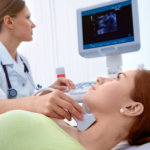Lactose intolerance is an allergy to milk, or more accurately an intolerance. It is caused by a lack of lactase in the individual. Lactase is an enzyme that has the job of breaking down lactose and milk in dairy products.
This then means that the lactose isn’t digested and absorbed into the body the way it should be. Instead, it simply passes through the system and then builds up inside the colon – the large intestine. From there, lactose can then become fermented. In other words, it begins to attract bacteria, which produce gas as they feed off of the lactose. The result is that the individual can start to feel bloated, gaseous, and sick. In some cases, this might lead then to vomiting but in most cases, the symptoms are considerably less noticeable.
Lactose itself is a sugar that is found in a great many different foods. These include milk but also cream, soft cheese, chocolate, ice cream, and more. This is not a condition that many people want to admit to, as it means saying goodbye to a love of many foods. But unfortunately, with the symptoms being rather uncomfortable, this is often unavoidable.
Here are some of those most common symptoms to help you identify the problem and do what must be done…
1. Bloating
As mentioned, lactose intolerance occurs because it causes lactose to build up in the intestines rather than being broken down. This in turn causes the patient to feel a sense of being bloated as gas is produced by the fermenting milk.
Remember the last time you discovered old, forgotten milk in your fridge? You might have noticed that it had a look a bit like yogurt and it probably didn’t smell so good! Well, unpleasant as it may be to think about, that is precisely what is inside you right now if you have lactose intolerance and you consumed milk this morning. The bloating suddenly makes sense!


